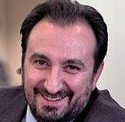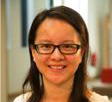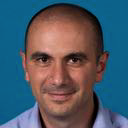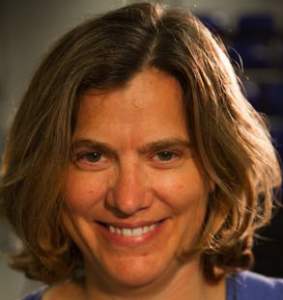The University of Sheffield is one of the most successful members of the UK’s prestigious Russell Group of research-intensive institutions. It has a formidable record in computational life sciences research and has collaborated in pan-European EC-funded projects since the earliest Framework Programmes. Having recently established the 130-member Insigneo Institute for in silico Research – a joint venture between the faculties of Medicine and Engineering together with Sheffield’s very large NHS Hospital Trust – it is Europe’s largest single facility dedicated to the investigation of computational healthcare, and now provides unified access to all aspects of simulation-based medical research. With expertise across medical science, the Institute focuses particularly on orthopaedic, cardiovascular, oncological and neurological research, with an increasing role in genetics and its associated large-volume data-processing.
As an important leader in the in silico research community, Sheffield has overseen the increasing maturity of mathematical modelling activities within medicine, developing sophisticated framework-based approaches to many aspects, including collaborative development environments, formalised multiscale technologies, secure data-sharing mechanisms, structured algorithmic development processes and generalised sharable workflow technologies. The Insigneo Institute is not only a centre for the focused development of in silico techniques but also a hub for the management of both large and small in silico research projects, including those with a strong industrial content. This combined academic and administrative expertise provides the consortium with significant strengths in both the philosophy and practicality of computational healthcare development, and provides strong support for biomedical engineering developments.
USFD are leading WP6: Empowering Biomedical Applications and are heading Neuro- Musculoskeletal Exemplar Research, Workflow Infrastructure, and Emerging Use Cases for Existing Solutions. USFD was one of the core partners in the VPH Network of Excellence, where, together with the Sheffield Teaching Hospitals NHS Foundation Trust (STH), it took particular responsibility for development of models for access to clinical data: this is of primary importance in the context of the current proposal. It has an excellent track record in participation in related research and in development of components that will contribute to the VPH, including analytical and computational tools. Recent European projects include @neurIST, in which it has led the work package developing the computational analysis workflows, euHeart, in which it led a work package on aortic diseases, Meddica, COAST and VPH-Share in which it is responsible for overall project design and coordination. In the current project it will provide oversight of the application workflows and curated models from its portfolio of research projects to be exposed to the wider community through the developed IT infrastructure, and it will exploit its special relationship with STH to ensure that the project addresses the needs of the clinical, research and industrial communities.
Sheffield Teaching Hospitals
Sheffield Teaching Hospitals NHS Foundation Trust manages the five NHS adult hospitals in Sheffield. It provides around one million appointments and operations a year and offers almost every treatment available through the NHS. The majority of patients are from Sheffield and the surrounding areas but around five per cent are from other parts of the country. They come for specialist treatments, many of which are offered in only a few NHS trusts in the UK. STH works very closely with the University of Sheffield to ensure it remains at the cutting edge of medical research and development, helping the Trust to develop new and specialist services for the benefit of patients from across the UK.
The NHS Department of Medical Physics is co-located with its academic counterpart, and together it has been hugely successful in being awarded project funding both locally and at an EU level. The two most recent large projects are @neurIST and VPH-Share. @neurIST (www.aneurist.org) ended recently and was a 4-year project with a 17M€ budget, gathering 28 public and private institutions of 12 European countries, in which STH’s role included clinical data collection, and the deployment, integration and testing of research information systems at 6 European clinical centres. VPH-Share (http://www.vph-share.eu/) is a 14M€ EC project that is constructing the key computational infrastructure designed to support future collaborative VPH research, and a significant component concerns the optimisation of the data/computation mechanism for workflows, carried out by the STH scientific computation group. The group’s primary role is the management and development of both clinical information systems and Picture Archiving and Communication Systems (PACS) within the five hospitals it covers. The group specifically focuses on the development of software to support and extend the functionality of commercial systems that are purchased by the hospital in order to realise the full benefits that electronic systems can offer health-care institutions, and this involves the application of open source and research outputs from projects they participate in. The majority of this work revolves around implementing standard interface technologies such as HL7, DICOM and web service requests between these clinical systems and extensive test protocols to ensure they work effectively.
Key Personnel
 Professor Marco Viceconti – Professor of Biomechanics at the Department of Mechanical Engineering at the University of Sheffield and Scientific Director of the Insigneo Institute for in silico Medicine. Before this he was the Technical Director of the Medical Technology Lab at the Rizzoli Orthopaedic Institute in Bologna, Italy. He is currently President of the European Alliance of Biomedical Engineering (EAMBES). His main research interests are related to the development and validation of medical technology, especially that involving simulation. He has published over 200 papers, and serves as reviewer for many international funding agencies and peer-reviewed journals. Marco Viceconti is one of the key figures in the emerging Virtual Physiological Human (VPH) community. Co-author of the first white paper on VPH, scientific coordinator of the seminal Europhysiome VPH research roadmap, “VPH ambassador” for the VPH Network of Excellence, coordinator of Avicenna Action that wrote the In Silico Clinical Trial roadmap, he is also President of the VPH Institute.
Professor Marco Viceconti – Professor of Biomechanics at the Department of Mechanical Engineering at the University of Sheffield and Scientific Director of the Insigneo Institute for in silico Medicine. Before this he was the Technical Director of the Medical Technology Lab at the Rizzoli Orthopaedic Institute in Bologna, Italy. He is currently President of the European Alliance of Biomedical Engineering (EAMBES). His main research interests are related to the development and validation of medical technology, especially that involving simulation. He has published over 200 papers, and serves as reviewer for many international funding agencies and peer-reviewed journals. Marco Viceconti is one of the key figures in the emerging Virtual Physiological Human (VPH) community. Co-author of the first white paper on VPH, scientific coordinator of the seminal Europhysiome VPH research roadmap, “VPH ambassador” for the VPH Network of Excellence, coordinator of Avicenna Action that wrote the In Silico Clinical Trial roadmap, he is also President of the VPH Institute.
 Dr Steven Wood – Registered Clinical Scientist and Head of the Scientific Computing section at STHFT. Dr Wood has over 10-years’ experience, in the development of clinical software systems primarily in the area of radiology where he was responsible for running the hospitals PACS system for several years. Dr Wood’s recent activities on a number of EU funded research projects and his interest in developing software quality control systems for healthcare applications would make him a valuable member of the consortium. In particular his work in the area of privacy enhancing technologies and distributed data services would be a great complement to the other activities in the project and his knowledge of live hospital IT ecosystems will ensure that research outputs have the best opportunities of translation into routine clinical service.
Dr Steven Wood – Registered Clinical Scientist and Head of the Scientific Computing section at STHFT. Dr Wood has over 10-years’ experience, in the development of clinical software systems primarily in the area of radiology where he was responsible for running the hospitals PACS system for several years. Dr Wood’s recent activities on a number of EU funded research projects and his interest in developing software quality control systems for healthcare applications would make him a valuable member of the consortium. In particular his work in the area of privacy enhancing technologies and distributed data services would be a great complement to the other activities in the project and his knowledge of live hospital IT ecosystems will ensure that research outputs have the best opportunities of translation into routine clinical service.
 Dr Xinshan Li – Lecturer in Mechanical Engineering, University of Sheffield and a member of the Insigneo Institute for in silico Medicine. Dr Li obtained her PhD in modelling the biomechanics of levator ani muscles from the Auckland Bioengineering Institute, New Zealand. After her PhD, Dr Li’s research also focused on cell-based modelling of epidermis and modelling the biomechanics of pediatric femurs, before taking up the lectureship in 2013. Dr Li’s current research interest is in patient-specific modelling of skeletal muscles and bones, as well as developing workflows for these applications. Dr Li holds grant funding from the Sheffield Teaching Hospital Charity and the University of Sheffield, as well as industrial funding from Ansys.
Dr Xinshan Li – Lecturer in Mechanical Engineering, University of Sheffield and a member of the Insigneo Institute for in silico Medicine. Dr Li obtained her PhD in modelling the biomechanics of levator ani muscles from the Auckland Bioengineering Institute, New Zealand. After her PhD, Dr Li’s research also focused on cell-based modelling of epidermis and modelling the biomechanics of pediatric femurs, before taking up the lectureship in 2013. Dr Li’s current research interest is in patient-specific modelling of skeletal muscles and bones, as well as developing workflows for these applications. Dr Li holds grant funding from the Sheffield Teaching Hospital Charity and the University of Sheffield, as well as industrial funding from Ansys.
 Dr Alberto Marzo – Lecturer in Mechanical Engineering, University of Sheffield and a member of the Insigneo Institute for in silico Medicine. His Doctorate studies focused on the numerical modelling of flows through collapsible vessels, which lead to the award of a David Crighton Fellowship from the University of Cambridge. After a short experience as Consultant Engineer for IDAC Ireland Ltd., a medical device company specialised in numerical modelling of cardiovascular applications, he worked for two years for the NHS as a Clinical Scientist, supporting the development of technology solutions for people with disabilities. Dr Marzo’s research area stands at the interface between the physical and life sciences. It is firmly rooted in engineering and mathematics in the context of computational mechanics, but has strong emphasis on clinical interpretation and translation of engineering technologies into clinical tools. As part of his research, Dr Marzo has worked on the development of several workflows as part of large EU initiatives, such as @neurIST and euHeart. His aspiration is to see the successful translation of state-of-the-art engineering technologies into the clinical tools of the future, with the ultimate aim of improving diagnosis and treatment of human disease.
Dr Alberto Marzo – Lecturer in Mechanical Engineering, University of Sheffield and a member of the Insigneo Institute for in silico Medicine. His Doctorate studies focused on the numerical modelling of flows through collapsible vessels, which lead to the award of a David Crighton Fellowship from the University of Cambridge. After a short experience as Consultant Engineer for IDAC Ireland Ltd., a medical device company specialised in numerical modelling of cardiovascular applications, he worked for two years for the NHS as a Clinical Scientist, supporting the development of technology solutions for people with disabilities. Dr Marzo’s research area stands at the interface between the physical and life sciences. It is firmly rooted in engineering and mathematics in the context of computational mechanics, but has strong emphasis on clinical interpretation and translation of engineering technologies into clinical tools. As part of his research, Dr Marzo has worked on the development of several workflows as part of large EU initiatives, such as @neurIST and euHeart. His aspiration is to see the successful translation of state-of-the-art engineering technologies into the clinical tools of the future, with the ultimate aim of improving diagnosis and treatment of human disease.
 Dr Claudia Mazzà – Received her PhD in Bioengineering in 2004 from the University of Bologna. She worked as a Lecturer from 2006 to 2013 at the Department of Human Movement Sciences at the University of Rome “Foro Italico”. In Feb 2013 she joined Insigneo and the Department of Mechanical Engineering as a Lecturer and she was promoted to Reader in Biomechanics in 2017. Claudia’s research focuses on the biomechanics of human movement and on the definition of experimental and modelling techniques for the clinical assessment of an individual’s locomotor and postural abilities. Claudia has been a Co-I in two VPH related European Projects, “MISSION-T2D: Multiscale Immune System Simulator for the Onset of Type 2 Diabetes integrating genetic, metabolic and nutritional data” (a €2.3M, 3-year project, of which she was work package leader) and “MD-Paedigree, Model Driven Paediatric European Digital Repository” (a €16.4M 4-year Integrated Project). She is Work Package leader in the £6.7M EPSRC Frontier Engineering Award on Modelling Complex and Partially Identified Engineering Problems and she is one of the core investigators in the newly established NIHR Sheffield’s Biomedical Research Centre for Translational Neuroscience.
Dr Claudia Mazzà – Received her PhD in Bioengineering in 2004 from the University of Bologna. She worked as a Lecturer from 2006 to 2013 at the Department of Human Movement Sciences at the University of Rome “Foro Italico”. In Feb 2013 she joined Insigneo and the Department of Mechanical Engineering as a Lecturer and she was promoted to Reader in Biomechanics in 2017. Claudia’s research focuses on the biomechanics of human movement and on the definition of experimental and modelling techniques for the clinical assessment of an individual’s locomotor and postural abilities. Claudia has been a Co-I in two VPH related European Projects, “MISSION-T2D: Multiscale Immune System Simulator for the Onset of Type 2 Diabetes integrating genetic, metabolic and nutritional data” (a €2.3M, 3-year project, of which she was work package leader) and “MD-Paedigree, Model Driven Paediatric European Digital Repository” (a €16.4M 4-year Integrated Project). She is Work Package leader in the £6.7M EPSRC Frontier Engineering Award on Modelling Complex and Partially Identified Engineering Problems and she is one of the core investigators in the newly established NIHR Sheffield’s Biomedical Research Centre for Translational Neuroscience.
 Dr Andrew Narracott – Senior Lecturer in the Department of Infection, Immunity and Cardiovascular Disease, University of Sheffield. He received his PhD in Medical Physics in 2002 from the University of Sheffield. The focus of this work was the interaction between balloon catheters and coronary stents during stent deployment using both experimental and numerical techniques. Following this Dr Narracott worked on a number of projects addressing a range of biomechanical applications including Fluid-Structure Interaction for cardiovascular simulation (Bloodsim, EU FP7), a commercial project funded by the Trustees for the Bowling-Pfizer Heart Valve Settlement Funds, a study of deep vein thrombosis treatment funded by the EPSRC and a six month period spent in Tokyo, Japan funded by the RIKEN institute to develop models of blood clotting in cerebral aneurysms. His ongoing research interest is the application of numerical techniques to the study of cardiovascular systems, with development of associated experimental validation methods. Application areas include coronary artery stenting, native and prosthetic valve function and venous haemodynamics. Dr Narracott has experience with innovative training programmes through participation in the MeDDiCA ITN (2.9M Euros, 2009-2013) and coordination, along with Dr John Fenner, of the VPH-CaSE Marie Skłodowska-Curie ITN (3.7M Euros, 2015-2018).
Dr Andrew Narracott – Senior Lecturer in the Department of Infection, Immunity and Cardiovascular Disease, University of Sheffield. He received his PhD in Medical Physics in 2002 from the University of Sheffield. The focus of this work was the interaction between balloon catheters and coronary stents during stent deployment using both experimental and numerical techniques. Following this Dr Narracott worked on a number of projects addressing a range of biomechanical applications including Fluid-Structure Interaction for cardiovascular simulation (Bloodsim, EU FP7), a commercial project funded by the Trustees for the Bowling-Pfizer Heart Valve Settlement Funds, a study of deep vein thrombosis treatment funded by the EPSRC and a six month period spent in Tokyo, Japan funded by the RIKEN institute to develop models of blood clotting in cerebral aneurysms. His ongoing research interest is the application of numerical techniques to the study of cardiovascular systems, with development of associated experimental validation methods. Application areas include coronary artery stenting, native and prosthetic valve function and venous haemodynamics. Dr Narracott has experience with innovative training programmes through participation in the MeDDiCA ITN (2.9M Euros, 2009-2013) and coordination, along with Dr John Fenner, of the VPH-CaSE Marie Skłodowska-Curie ITN (3.7M Euros, 2015-2018).
